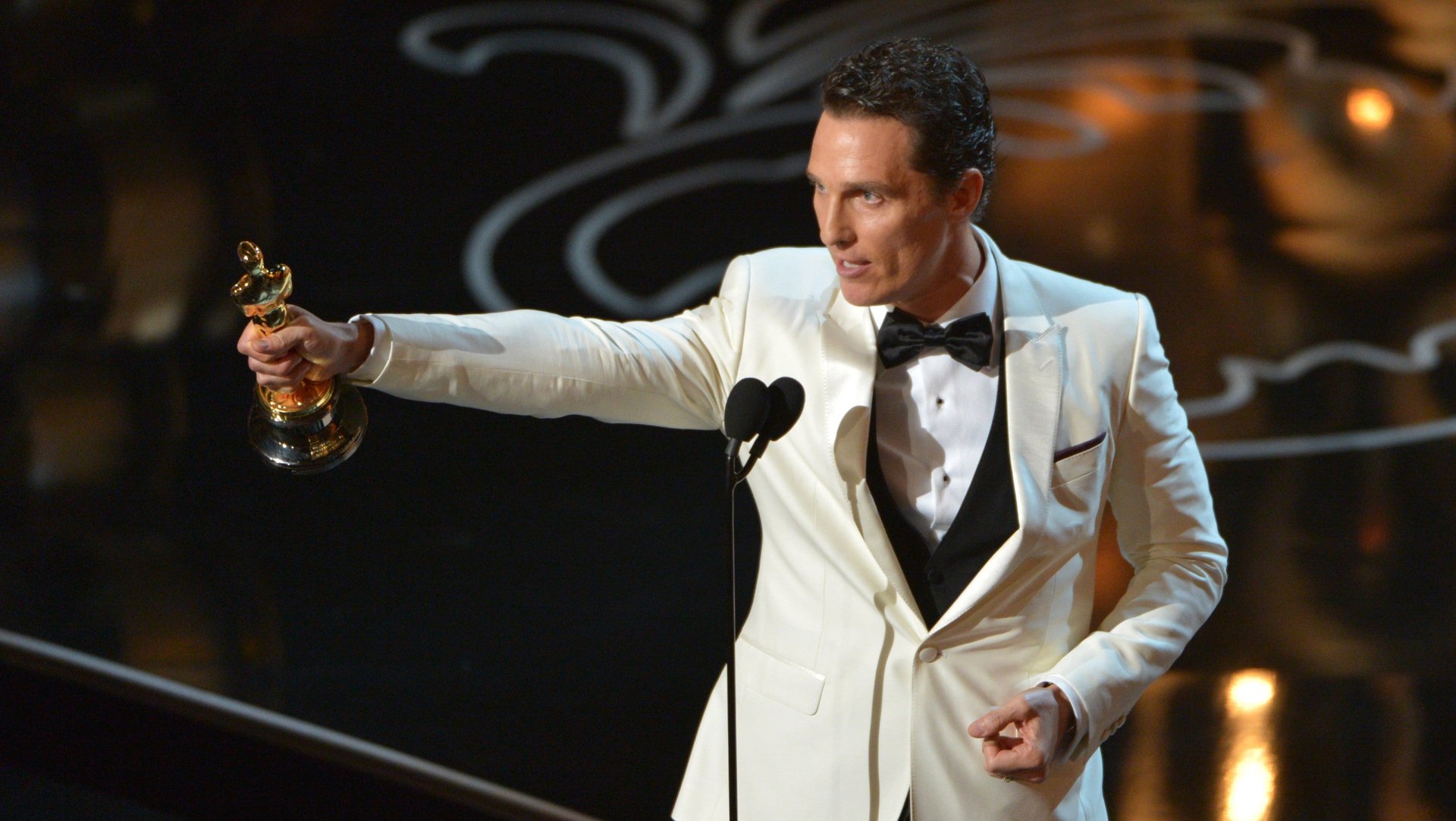For this year’s Oscars speeches, thank you’s will be moved to a ticker along the bottom of your screen
One of the worst things about the Oscars are the acceptance speeches. Winners typically thank a laundry list of colleagues, friends, family members, publicists, managers, God, etc.


One of the worst things about the Oscars are the acceptance speeches. Winners typically thank a laundry list of colleagues, friends, family members, publicists, managers, God, etc.
But the producers of this year’s show have come up with an idea that could change all that: Nominees must submit a list of thank you’s beforehand, and all winning speeches will be accompanied by a scrolling list of those thank you’s at the bottom of the screen.
The scrolling list will be similar to the tickers used by American TV networks CNBC and ESPN—but instead of stock prices or sports scores, the Oscar ticker will show a list of people you probably have never heard of. The theory is that this will not only cut the prolonged speeches short, but it will also encourage winners to speak from the heart instead of robotically reciting a list of people who helped them.
Indeed, many of the best speeches in Oscar history have come when winners eschewed the tradition of listing thank you’s, instead choosing to devote their brief speeches to an issue or cause they believe in.
Last year, for instance, Patricia Arquette, who won best supporting actress for her role in Boyhood, used her speech to draw attention to the gender pay gap in the United States. Perhaps the most famous Oscar acceptance speech of all time was Marlon Brando’s in 1973 for The Godfather, which was not given by Brando at all. Instead, he sent Sacheen Littlefeather, an actress and Native American activist, to speak on his behalf (video).
But can actors and filmmakers really be forced into not saying their customary thank you’s? It’s entirely possible that they won’t be able to resist including a few thank you’s in the speech, rendering the ticker largely pointless. The show’s producers argued that the ticker is actually a more powerful form of gratitude, because the image can be saved forever. Apparently they have never heard of audio.
Whether or not the change successfully enlivens the Oscars speeches is beside the point. The Oscars, an 86-year-old ceremony overseen by a body of mostly old, white people, that honors mostly white people, needs to do a lot more than a minor technical innovation to improve its legacy.
The Oscars will air this Sunday, Feb. 28, at 8:30pm eastern time on ABC in the US.